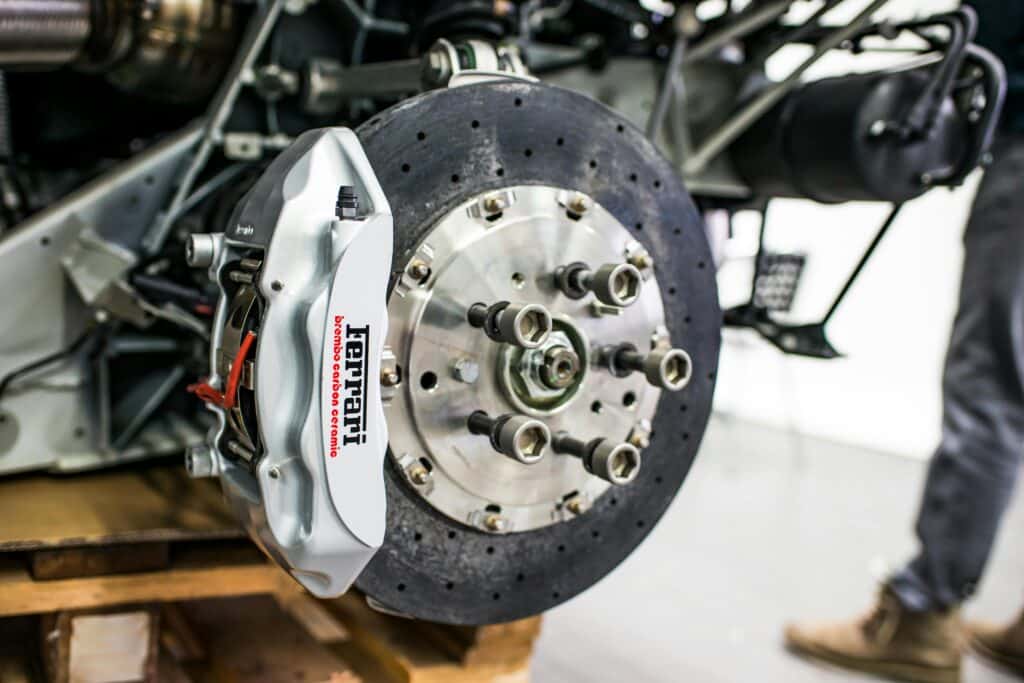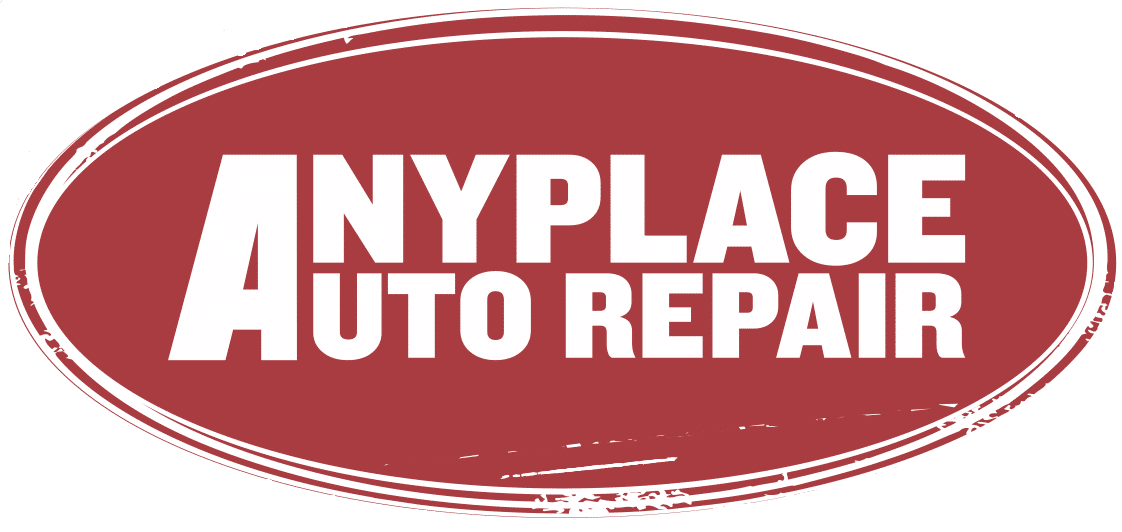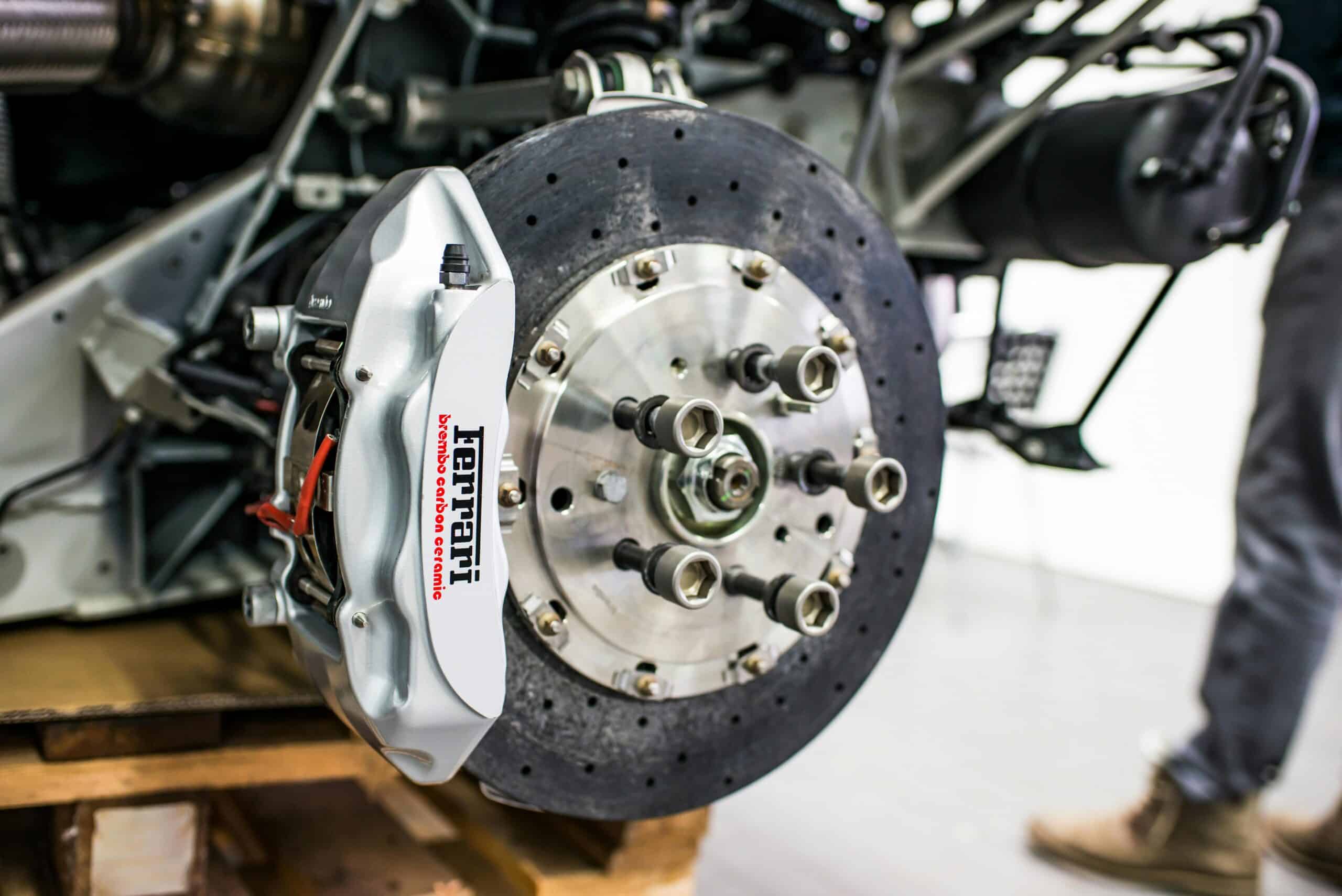Your car’s brake system is one of the most crucial components of your vehicle, ensuring your safety and the safety of others on the road. Regular maintenance of your brakes is essential to prevent accidents, extend the lifespan of your vehicle, and avoid costly repairs. One of the most common questions we get at Anyplace Auto Repair is whether to resurface your brake rotors or replace them altogether. If you’ve been asking, “Should I resurface my brakes?” or “When should I change my brakes?” you’re in the right place!
In this blog post, we’ll dive into when you should resurface your brakes, when it’s better to just replace them, and why resurfacing may not always be the best option (especially if you want to avoid that annoying squeaking sound). We’ll also explain how Anyplace Auto Repair, serving Phoenix, Scottsdale, Tempe, Mesa, Glendale, and surrounding areas, can help you with all your brake maintenance needs.

What Does Resurfacing Your Brakes Mean?
Resurfacing your brake rotors involves removing a small amount of material from the surface of the rotor to ensure it’s smooth, flat, and free of grooves, cracks, or uneven wear. This is typically done when the rotors are slightly worn but still have enough material left for safe operation. Resurfacing helps restore a smooth braking surface and improves the contact between the brake pads and the rotor.
However, while resurfacing can be a quick and cost-effective option, it’s not always the best choice for every situation.
When Should You Resurface Your Brake Rotors?
Resurfacing can be a good option in certain circumstances, but it depends on the condition of your rotors. Here are a few signs that resurfacing might be a good option:
1. Light to Moderate Rotor Wear
If your rotors are slightly worn but still have plenty of thickness remaining, resurfacing can be an effective way to restore their function. The key here is that the rotors must have enough material left to be resurfaced without becoming too thin.
2. Smooth, Unbroken Surface
If the rotor surface is relatively smooth, with only minor grooves or scoring, resurfacing can help remove these imperfections and extend the life of the rotor. However, deep grooves, cracks, or discoloration usually indicate more significant damage, which may require a full replacement.
3. Minor Vibrations or Uneven Braking
If you’re experiencing minor vibrations when braking, resurfacing can help smooth out the rotor and improve brake performance. Uneven braking can also result from rotors that are slightly warped or unevenly worn, so resurfacing can provide a temporary fix in this case.
When Should You Replace Your Brakes Instead of Resurfacing?
While resurfacing your rotors might seem like an easy fix, there are situations where replacing your brakes entirely is the better option. Here’s when you should consider replacing your brake pads and rotors rather than resurfacing them:
1. The Rotors Are Too Thin
Rotors have a minimum thickness standard that must be met for safe operation. If your rotors have worn down past this point, resurfacing them will make them too thin, which can compromise their strength and effectiveness. In this case, it’s best to replace the rotors rather than resurface them.
2. Visible Cracks or Deep Grooves
If your rotors have deep grooves, cracks, or significant scoring, resurfacing won’t fix the problem. These issues indicate that the rotors are too damaged to be resurfaced safely, and they should be replaced instead.
3. Brake Squeaking or Noise
If your brake pads are worn down and making noise, resurfacing the rotors might not resolve the issue. In fact, resurfacing worn rotors can make the squeaking sound worse. If you’re hearing squeaks, it may be time to replace both the brake pads and rotors.
4. Uneven Brake Pad Wear
If your brake pads are unevenly worn or if the brake pads are too thin, replacing the pads and rotors is the safest option. Uneven brake pad wear can cause problems with braking performance and lead to uneven wear on your new rotors, which can result in more issues down the road.
Should You Even Resurface Your Brakes at All?
The short answer is: Not if you don’t want any squeaking! 🤫
When you resurface your rotors, it removes material from the surface, which can affect the thickness and smoothness of the rotor. This can sometimes result in a rougher surface that can create additional friction between the brake pads and the rotor, leading to that annoying squeaking noise you hear when you brake. The squeaking is often caused by uneven or worn rotors, which resurfacing can exacerbate.
In many cases, replacing the rotors and brake pads is a more effective solution than resurfacing, as it provides a fresh start for your braking system. You’ll avoid the potential squeaking and also ensure better braking performance.
Signs It’s Time to Replace or Resurface Your Brakes
Knowing when to replace or resurface your brakes is crucial for maintaining safe driving conditions. Here are some signs that indicate your brakes may need attention:
- Grinding or squeaking noises when braking
- Vibrations or pulling when applying brakes
- Brake pads less than ¼ inch thick
- Brake warning light illuminated on your dashboard
- Increased stopping distance
- Uneven brake pad wear
How Anyplace Auto Repair Can Help
At Anyplace Auto Repair, we offer mobile brake inspections and repairs in Phoenix, Scottsdale, Tempe, Mesa, Glendale, and surrounding areas. Whether it’s time to resurface your rotors or replace your brake pads, our expert mobile mechanics will come to you for fast and reliable service. We’ll inspect your brake system, help you understand the best options for your car, and perform any necessary repairs to keep you safe on the road.
Schedule Your Brake Service Today
Don’t let brake issues jeopardize your safety! If you’re unsure whether you need to replace your brakes or just resurface your rotors, Anyplace Auto Repair can help. We’ll come to you, perform a thorough inspection, and provide the right solution for your vehicle’s needs.
📞 Call us today 480-613-2078 or book online at www.anyplaceautorepair.com
#BrakeRepair #BrakeService #AutoRepair #PhoenixAutoCare #SuspensionRepair #CarMaintenance #CarCare #BrakeInspection #MobileMechanic #PhoenixMechanic
- How Extreme Heat Affects Car Batteries in Phoenix, AZ (and What to Do About It)
- Wheel Alignment in Phoenix, AZ: What You Need to Know
- Check Engine Light in Phoenix, AZ: What It Really Means (And Why You Shouldn’t Ignore It)
- Transmission Repair in Phoenix, AZ – Mobile Service & What You Need to Know
- Alternator Problems in Phoenix, AZ: Signs, Causes & Mobile Fixes


Leave a Reply